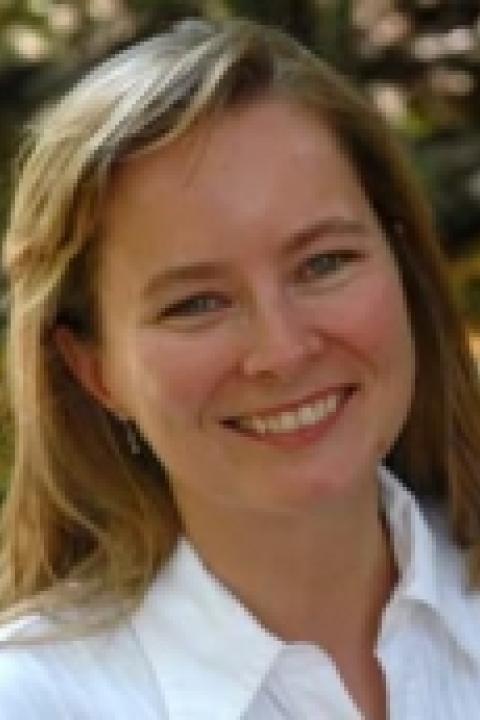
Rosemarie Came
My laboratory methods include foraminiferal trace and minor element geochemistry, and carbonate clumped isotope geochemistry. I am especially interested in the integration of paleoclimate data and model simulations, which is achieved through collaborations with climate modelers and dynamicists.
I am happy to speak with motivated prospective graduate students.
Courses Taught
- ESCI 444A: Hon/Philosophy of EarthScience
- ESCI 501: Introduction to Oceanography
- ESCI 514: Introduction to Climate
- ESCI 760/860: Paleoceanography
Education
- Ph.D., Oceanography(Chem.&Physical), Massachusetts Institute of Technology
- M.A., Philosophy, Boston College
- M.A., Massachusetts Institute of Technology
- B.S., Geology/Earth Science, Boston College
Selected Publications
Waelbroeck, C., Lougheed, B. C., Riveiros, N. V., Missiaen, L., Pedro, J., Dokken, T., . . . Ziegler, M. (2019). Consistently dated Atlantic sediment cores over the last 40 thousand years. SCIENTIFIC DATA, 6. doi:10.1038/s41597-019-0173-8
Came, R. E., Azmy, K., Tripati, A., & Olanipekun, B. -J. (2017). Comparison of clumped isotope signatures of dolomite cements to fluid inclusion thermometry in the temperature range of 73–176°C. Geochimica et Cosmochimica Acta, 199, 31-47. doi:10.1016/j.gca.2016.10.028
Brand, U., Blarney, N., Garbelli, C., Griesshaber, E., Posenato, R., Angiolini, L., . . . Came, R. (2016). Methane Hydrate: Killer cause of Earth's greatest mass extinction. PALAEOWORLD, 25(4), 496-507. doi:10.1016/j.palwor.2016.06.002
Brand, U., Came, R. E., Affek, H., Azmy, K., Mooi, R., & Layton, K. (2014). Climate-forced change in Hudson Bay seawater composition and temperature, Arctic Canada. CHEMICAL GEOLOGY, 388, 78-86. doi:10.1016/j.chemgeo.2014.08.028
Came, R. E., Brand, U., & Affek, H. P. (2014). Clumped isotope signatures in modern brachiopod carbonate. CHEMICAL GEOLOGY, 377, 20-30. doi:10.1016/j.chemgeo.2014.04.004
Brand, U., Posenato, R., Came, R., Affek, H., Angiolini, L., Azmy, K., & Farabegoli, E. (2012). The end-Permian mass extinction: A rapid volcanic CO2 and CH4-climatic catastrophe. CHEMICAL GEOLOGY, 322, 121-144. doi:10.1016/j.chemgeo.2012.06.015
Huntington, K. W., Eiler, J. M., Affek, H. P., Guo, W., Bonifacie, M., Yeung, L. Y., . . . Came, R. (2009). Methods and limitations of 'clumped' CO2 isotope (Delta(47)) analysis by gas-source isotope ratio mass spectrometry. JOURNAL OF MASS SPECTROMETRY, 44(9), 1318-1329. doi:10.1002/jms.1614
Carlson, A. E., Legrande, A. N., Oppo, D. W., Came, R. E., Schmidt, G. A., Anslow, F. S., . . . Obbink, E. A. (2008). Rapid early Holocene deglaciation of the Laurentide ice sheet. NATURE GEOSCIENCE, 1(9), 620-624. doi:10.1038/ngeo285
Came, R. E., Eiler, J. M., Veizer, J., Azmy, K., Brand, U., & Weidman, C. R. (2007). Coupling of surface temperatures and atmospheric CO2 concentrations during the Palaeozoic era. Nature, 449(7159), 198-201. doi:10.1038/nature06085
Came, R. E., Came, R. E., Oppo, D. W., & McManus, J. F. (2007). Amplitude and timing of temperature and salinity variability in the subpolar North Atlantic over the past 10 k.y.. Geology, 35(4), 315-318. doi:10.1130/G23455A.1